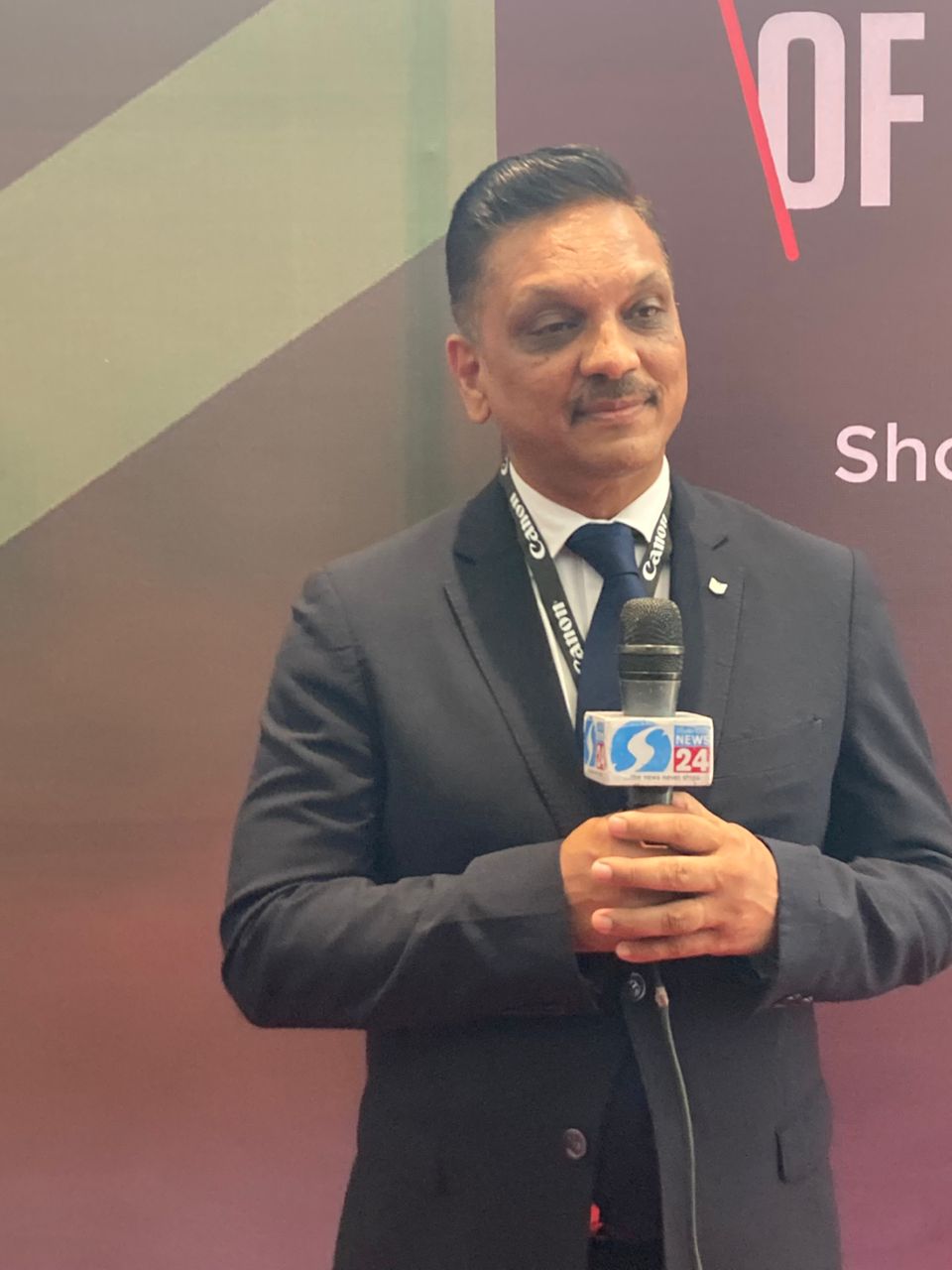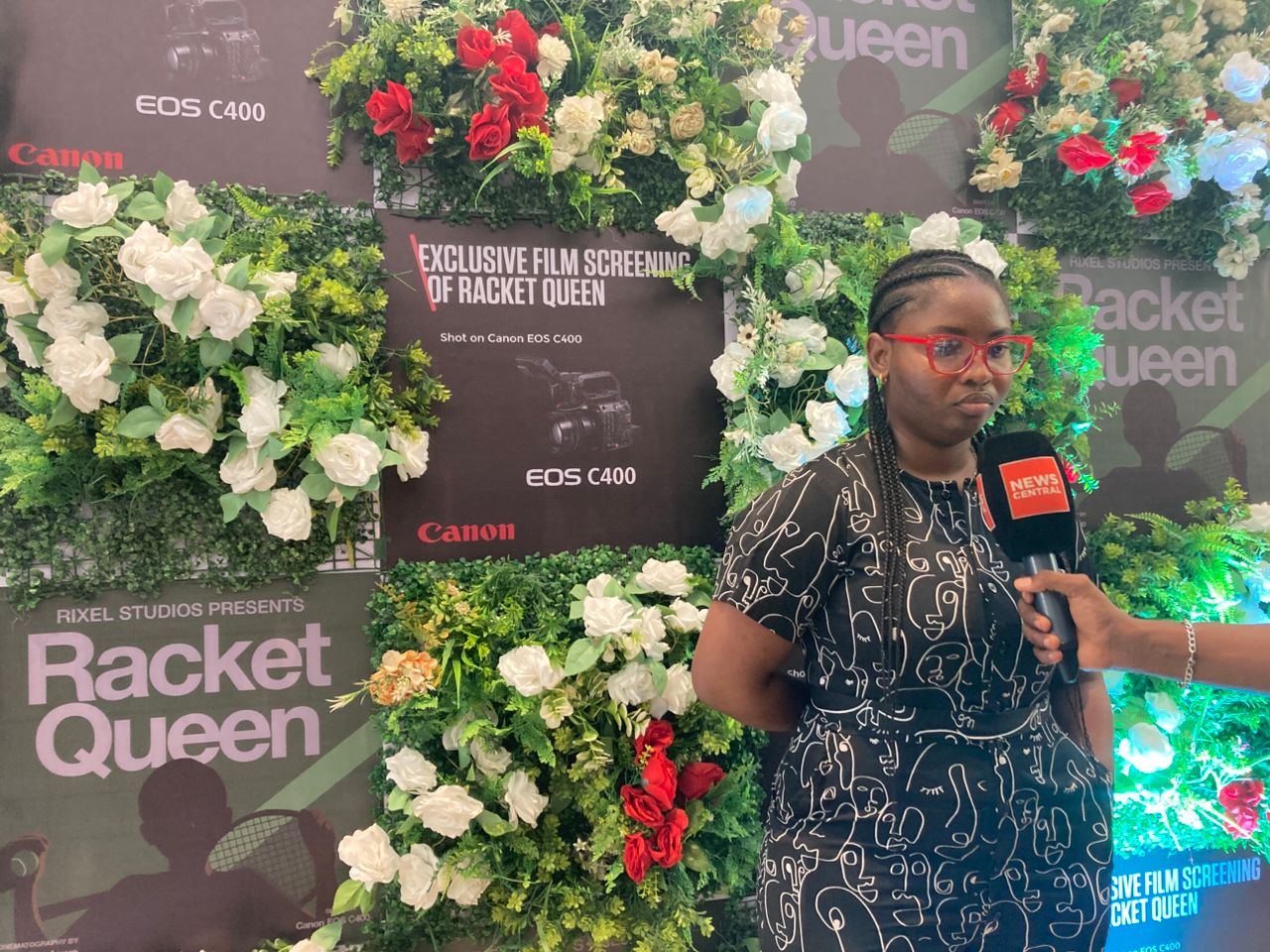



































“Racket Queen”: Canon and Nollywood cinematographer Nora Awolowo premiere short film
 WHEN
WHEN
 READ
READ
 VIEW
VIEW
 WOULD
WOULD
Canon partnered with Nigerian cinematographer Nora Awolowo for the premiere screening of “Racket Queen”, a short film exploring themes of parental support, resilience, and the pursuit of creative dreams against the odds.
The collaboration, which brought together one of the world’s leading camera technology brands and a rising talent in African filmmaking, signals a deepening relationship between global tech companies and Nigeria’s thriving creative industry.
Speaking at the premiere, Rashad Ghani, B2C Business Unit Director at Canon Central and North Africa, emphasised the company’s long-term commitment to the Nigerian market. “We have been in this market for the past almost 10 years now,” Ghani said. “We have already done two collaborations…We are involved in Nollywood projects.”
Ghani was clear about what drives Canon’s collaboration decisions. “We never collaborated with Nollywood because she’s a female DOP. It’s only because of her talent and the work that she has done. We always believe in the right talent, and we want to support the talent who are ready to take up the challenge.”

Tech meets storytelling
For Awolowo, the technical capabilities of Canon’s camera equipment were crucial to bringing her vision to life. The cinematographer, who studied accounting before transitioning to filmmaking, chose to shoot challenging night scenes specifically to test the camera’s low-light performance.
“I wanted to test out what the quality was like when I was shooting low light,” Awolowo explained. “Interestingly, the camera has something called dual native ISO. Basically, what it means is that you can continue increasing your ISO, that’s the exposure, without adding noise.“
Read also: Movie review: Lagos, lies, and lessons in ‘To Kill a Monkey’
In simpler terms, the technology allowed her to shoot in dark conditions without the grainy quality that typically plagues low-light footage.
“There’s this thing where you shoot and your exposure in the dark creates noise on your camera,” she said. “But what the dual native ISO has done is that even if you increase the exposure, the noise level stays minimal.“
This technical advantage proved essential for the film’s aesthetic. Awolowo is meticulous about her post-production workflow, particularly colour grading. “I do a lot of editing myself. I’m very particular about those things. I try to see what it looks like while we’re filming, so I know what the post-production colour is going to look like. And I got what I wanted.”

The choice of lenses also played a significant role in the film’s visual language. For indoor scenes, Awolowo opted for a cinematic approach with stabilised footage, while outdoor sequences were shot handheld to create a more intimate, visceral feel.
“For the indoor scene, we went very cinematic. When I went outside, I wanted it shaky because of the lens. It was also about stabilising the emotion,” she said.
“Racket Queen” is a personal story, universally told
“Racket Queen” draws from Awolowo’s own experience navigating parental expectations while pursuing an unconventional career path. “I studied accounting in school. I’m an accountant, and storytelling is not the kind of thing parents thought their child would do,” she shared.
Her parents’ initial reaction to her photography aspirations was telling. “The first time I told my mother and father I wanted to be a photographer, they were like, ‘Oh, you want to take passport pictures?'”
But the film isn’t just autobiographical. Awolowo wove in stories from friends and colleagues who faced similar challenges; some with parental support, others without. “I’ve seen friends whose parents said, ‘Oh, you want to do this? Don’t worry, we’ll get you a camera.’ My first camera was from a friend whose parents bought him a camera, and he never used it for photography. He just gave it to me.”
The narrative follows a young athlete, originally conceived as a skater but changed to tennis due to casting constraints, whose mother supports her ambitions despite the limited opportunities for Nigerian athletes.
“We’ve seen sports stories in Nigeria where you train and train and you don’t even get to go far. Few athletes get to go outside the country,” Awolowo noted.
The film’s protagonist experiences grief and ultimately triumph, with visual details carefully crafted to enhance the storytelling.
“The awards in the house were not there the first time when the mother was alive. But when the mother died and colleagues came to visit, the awards were now displayed. Those are the things that matter,” Awolowo explained.
Local presence, global support
Canon’s approach in Nigeria extends beyond one-off collaborations. Ghani emphasised the company’s accessible local presence.
Read also: Hijack ’93 is a brilliant throwback—for anyone craving hollow emotions and bland dialogue

“Our team is here. We are present locally. Any good project, anything which we see that we should collaborate on, we are open to collaboration. We are collaborating with many in the industry. A lot of content creators are involved with us.”
This accessibility addresses a common challenge for African filmmakers: access to professional-grade equipment and technical support.
For Awolowo, who admitted to nearly postponing the project when technical challenges arose, having that support proved invaluable.

